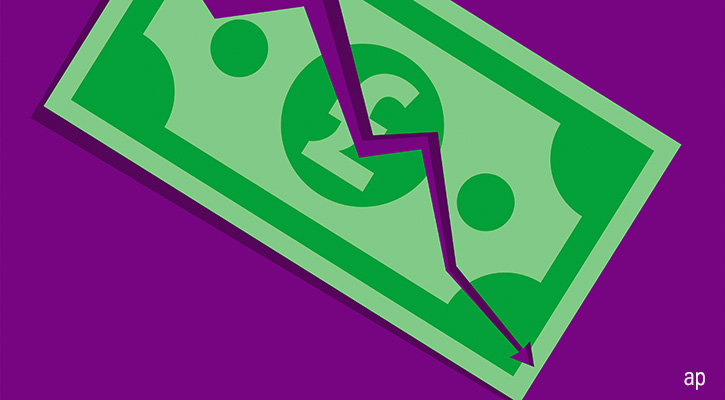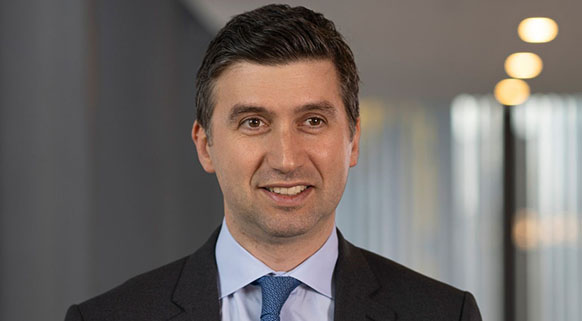
In this series of short profiles, we ask leading fund managers to defend their investment strategies, reveal their views on cryptocurrency, and tell us what they'd never buy.
For this week’s UK special, our interviewees are James Goldstone and Ciaran Mallon, co-managers of the Morningstar 4-star rated Invesco Select Trust UK Equity Share Portfolio (IVPU).
Which Sector Shows The Biggest Promise in 2022?
Ciaran Mallon (CM): Last year, we thought there was a good chance that inflation would pick up this year, as we reopened from the pandemic. So we came into 2022 with overweights to some sectors where inflation was a benefit, like regulated utilities and oil. As we look ahead, inflation may remain high, in which case, these two sectors could continue to do well. But our portfolios are balanced. And we largely focus on the potential of the companies we invest in, rather than the sectors that they happen to be.
What's The Biggest Economic Risk Today?
James Goldstone (JG): I think in the immediate term, the biggest risk is probably that inflation remains elevated. But I do think that the market is quite quickly moving on to the next risk, which is that the monetary response to higher inflation from central banks – raising interest rates in a world where there's so much debt at every level of the economy – perhaps those higher interest rates can produce a recession. If that does happen, and we do find ourselves with a recession, there could be limited room for manoeuvre, given the central banks are currently committed to shrinking the balance sheets.
Describe Your Investment Strategy
CM: We're long-term investors with portfolios which are well diversified. But meaningfully different to the index. We spend more time looking at company fundamentals than taking economic views. The companies we favour are well-managed, strongly placed in their industries, make good returns on equity and have the right balance sheet to allow management the freedom to execute their strategy. Valuation is important to us, but we look at valuation in relation to the nature of the business and the opportunities ahead of it. The goal is to have the performance of the companies drive the portfolio performance and not to reflect particular economic views.
Which Famous Investor or Professional Do You Admire?
He’s a controversial character but it’s hard not to admire Elon Musk, Tesla’s CEO. He had a vision which was fundamentally about sustainability and how we as humans would need to change to secure the future for our species. Thinking big, pursuing a vision and sticking to his conviction over the long term has made him the richest man on the planet. We believe that sustainable businesses can be great successes when they tap into future growth trends, and he’s clear evidence of just how possible that is.
Name Your Favourite "Forever Stock"
CM: I'm sure the right answer to this is to say that forever is a long time, valuations change, and the world changes. So no, there is no forever stock. But there are some companies where I think the opportunities ahead of them are huge. And it isn't difficult to imagine their growth to continue for many years to come. And one light that that springs to mind is Bunzl.
JG: I'm going to echo everything Ciaran said – I think that probably is the right answer. But in the spirit of trying to answer the question properly, I’m going to say PRS REITs, which is a portfolio of family houses in the UK. And although nothing is forever in the context of my investing life, and probably my actual life, this portfolio of houses is going to be there forever. And so that looks like a forever asset. And as long as it continues to be well managed, the valuation remains appropriate. I can't see why I wouldn't want to maintain a hold.
What Would You Never Invest In?
JG: We'd like to say never say never. But we're not invested in the gambling sector. I just think that the prevalence, the ease of access, the ubiquity of the advertising now makes regulation a risk.
Growth or Value?
CM: We appreciate that this is a common distinction between investment styles. But we have balanced portfolios, so I would not describe the portfolios as either growth or value. In fact, we don’t think this distinction is useful, because growth is surely a driver of value.
House or Pension?
CM: Both. I like to diversify.
JG: I would also say both, but if you put a gun to my head, I’d say house, because my children can't live in my pension.
What Are Your Thoughts on Crypto?
JG: Well, it's an exciting new technology. And we do like to keep an open mind. But we've never felt that we understand the investment case and where the value comes from, so we haven’t invested in it.
What Can be Done to Increase Diversity in Fund Management?
CM: We think different viewpoints in an investment team lead to a better quality of debate and analysis and hopefully, better investment outcomes.
Have You Ever Engaged With a Company and Been Particularly Proud (or Disappointed) in the Outcome?
Engagement is core to what we do, and it always has been. For example, when we took over in 2020, the management of Invesco High income and Invesco Income there was very extensive engagement with a number of companies that we went through to ensure the right outcomes for investors. In more normal circumstances, we engage with companies, literally every week, on issues from remuneration to compensation. And I don't think it would be appropriate to single out a name a company. Because we think engagement is most effective when it's done behind closed doors.
What's The Best Bit of Advice You’ve Ever Been Given?
JG: You make your own luck in life – now go be lucky.
CM: You can't control how clever you are, but you can control how hard you work, so work hard.
What Would You Be if You Weren’t a Fund Manager?
JG: Assuming that I'd have time to work on it and develop the requisite skills, I'd be a professional mountain biker.
CM: I think it's quite likely that if I wasn't a fund manager that I would be in the information technology industry.





























